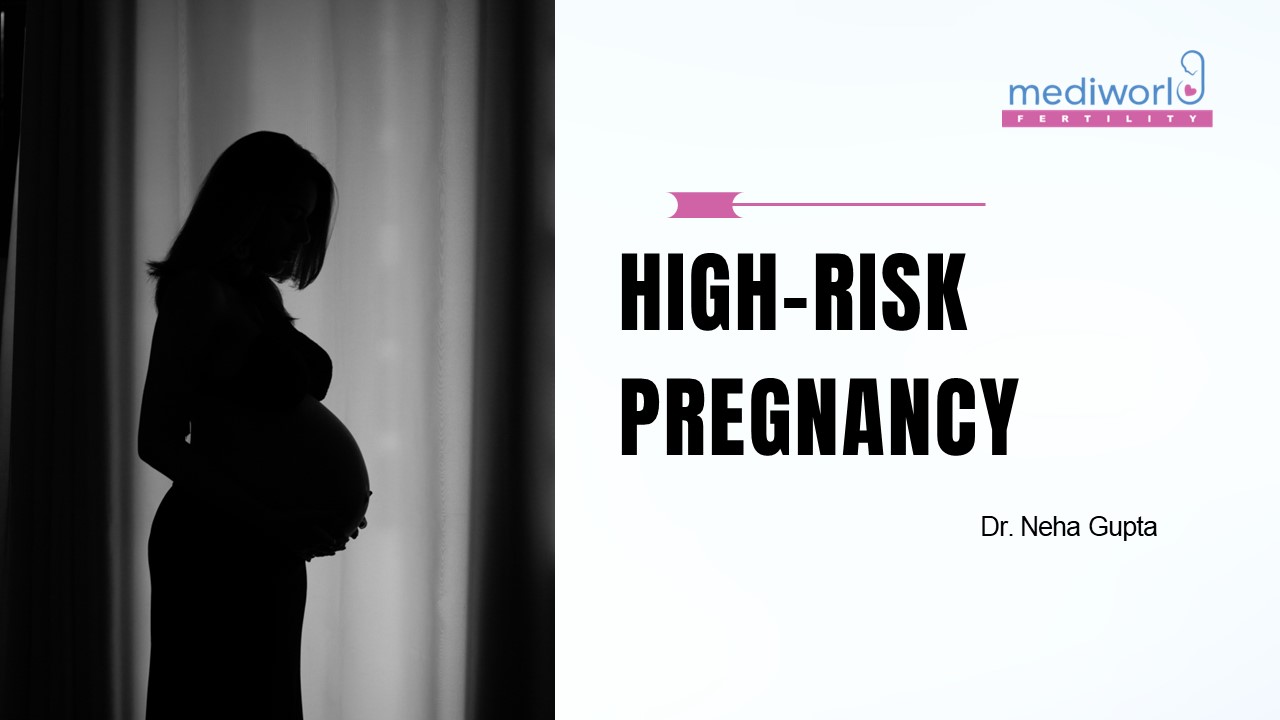High-Risk Pregnancy PowerPoint PPT Presentation
Title: High-Risk Pregnancy
1
HIGH-RISK PREGNANCY
Dr. Neha Gupta
2
01
02
03
CONTENTS
About
What is High Risk Pregnancy?
Causes
04
05
06
Risk Factors
Sign Symptoms
Diagnosis
07
Prevention
3
High-Risk Pregnancy
A high-risk pregnancy is a pregnancy that
involves increased health risks for the pregnant
person, fetus or both. Certain health conditions
and your age (being over 35 or under 17 when
pregnant) can make a pregnancy high risk. These
pregnancies require close monitoring to reduce
the chance of complications.
4
What is a High-Risk Pregnancy?
All pregnancies carry risks. The definition of a
high-risk pregnancy is any pregnancy that
carries increased health risks for the pregnant
person, fetus or both. People with high-risk
pregnancies may need extra care before, during
and after they give birth. This helps to reduce
the possibility of complications. However,
having a pregnancy thats considered high risk
doesnt mean you or your fetus will have
problems. Many people experience healthy
pregnancies and normal labor and delivery despite
having special health needs.
5
Causes
- Factors that make a pregnancy high risk include
- Preexisting health conditions.
- Pregnancy-related health conditions.
- Lifestyle factors (including smoking, drug
addiction, alcohol abuse, and exposure to certain
toxins). - Age (being over 35 or under 17 when pregnant).
6
Risks Factors
- Risks During Pregnancy
- Autoimmune diseases, such as lupus or multiple
sclerosis (MS). - COVID-19.
- Diabetes.
- Fibroids.
- High blood pressure.
- HIV/AIDS.
- Kidney disease.
- Low body weight (BMI of less than 18.5).
- Mental health disorders, such as depression.
- Obesity.
- Polycystic ovary syndrome (PCOS).
- Thyroid disease.
- Blood clotting disorders.
7
Sign Symptoms
- Abdominal pain that doesnt go away.
- Chest pain.
- Dizziness or fainting.
- Extreme fatigue.
- The fetus's movement stopping or slowing.
- Fever over 100.4F.
- Heart palpitations.
- Nausea and vomiting thats worse than normal
morning sickness. - Severe headache that wont go away or gets worse.
- Swelling, redness or pain in your face or limbs.
- Thoughts about harming yourself or the fetus.
8
Diagnosis
- Blood and urine testing to check for genetic
conditions or certain congenital conditions
(birth defects). - Ultrasonography, which uses sound waves to create
images of the fetus to screen for congenital
conditions. - Monitoring to ensure the fetus is getting enough
oxygen, such as a biophysical profile, which
monitors their breathing, movements and amniotic
fluid using ultrasound, and a non-stress test,
which monitors their heart rate.
9
Prevention
- Avoiding drugs and alcohol.
- Identifying potential health risks before getting
pregnant. Tell your doctor about your familial
and personal medical history. - Maintaining a healthy body weight before
pregnancy. - Managing any preexisting health conditions you
may have. - Making sure any long-term medications are safe to
take during pregnancy. - Quitting smoking.
- Practicing safe sex.
10
THANK
YOU
91-9315615376
mediworldfertility.com

